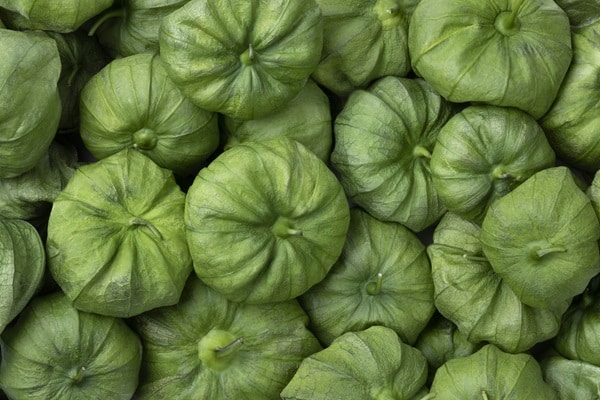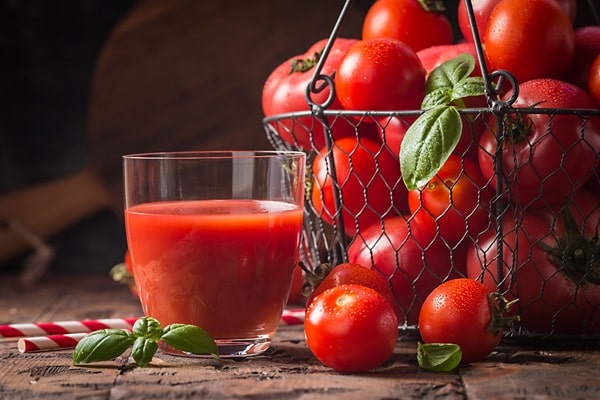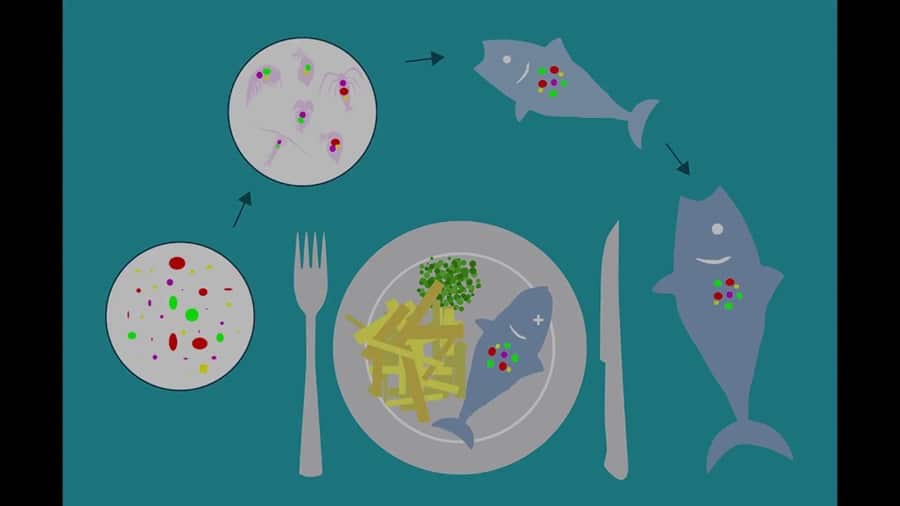Nightshade Vegetables, often unnoticed, form a substantial part of your everyday diet. These intriguing vegetables are a delightful combination of flavors and nutrition. They might sound mysterious, but they are found in familiar dishes. This article will aim to unveil the secrets of these superfoods, debunk associated myths, and show how to easily integrate them into your meals.
Contents
- 1 What Are Nightshade Vegetables?
- 2 Why You Should Be Eating Nightshade Vegetables
- 3 Nutrient-Rich
- 4 Disease Prevention
- 5 Dietary Variety
- 6 Addressing The Nightshade Controversy
- 7 How To Incorporate Nightshade Vegetables Into Your Diet
- 8 Easy-To-Make Recipes
- 9 Adding To Existing Dishes
- 10 Smoothies And Juices
- 11 Start Reaping the Benefits of Nightshade Vegetables Today!
What Are Nightshade Vegetables?

Belonging to the Solanaceae family, nightshade vegetables are an eclectic group of over 2,000 plant species. Some of these species have made their way onto your dining tables in various forms. From your morning hash browns made from potatoes to your dinner’s eggplant lasagna, nightshades have silently made their way into nearly every meal. Many other well-known nightshade vegetables, including tomatoes, bell peppers, and even some types of berries, have become staples in kitchens around the world.
The name “nightshade” might sound ominous, conjuring up images of deadly potions and poisons, but rest assured, the edible members of this family are safe and nutritionally dense. It’s important to clarify, though, that while many nightshade vegetables are safe to consume, certain species, such as belladonna, are indeed poisonous and not meant for human consumption.
Why You Should Be Eating Nightshade Vegetables
Our diet plays an instrumental role in determining your health. With the increasing awareness around eating wholesome, nutrient-rich food, nightshade vegetables have gained recognition for their multitude of benefits. Below, you will delve into some significant reasons that underline why these underappreciated veggies deserve a place in your diet.
Nutrient-Rich

Nightshade vegetables are a powerhouse of essential nutrients. For instance, tomatoes are loaded with vitamin C, potassium, and the powerful antioxidant lycopene, which has been linked to heart health. On the other hand, potatoes are an excellent source of vitamin B6, potassium, and fiber when consumed with the skin.
Similarly, bell peppers, whether red, yellow, or green, are abundant in vitamins A, C, E, and K, as well as B vitamins. They also provide a good amount of fiber. Eggplants, too, contribute to your daily nutrient intake with a rich supply of fiber, vitamins B1 and B6, and minerals like potassium and manganese. Consuming a mix of these veggies can help ensure a well-rounded, nutrient-dense diet.
Disease Prevention

Several studies suggest that the bioactive compounds found in nightshade vegetables may help prevent chronic diseases. These vegetables are rich in antioxidants which combat oxidative stress in the body, a key factor in the development of diseases such as cancer and heart disease. Tomatoes, for example, contain lycopene, a potent antioxidant that’s been linked to a reduced risk of heart disease and cancer.
In addition, the high fiber content in nightshades plays a significant role in maintaining gut health, preventing constipation, and lowering the risk of certain types of cancer. Regular consumption of these vegetables may therefore contribute to a lower risk of developing these diseases. However, as with any health claim, it’s important to remember that eating nightshades alone won’t prevent disease. They should be part of a balanced, varied diet and a healthy lifestyle.
Dietary Variety

Including a variety of nightshade vegetables in your diet can add a burst of color, flavor, and texture to your meals. For instance, the sweet crunch of bell peppers can enhance the texture of salads and stir-fries. The soft, creaminess of cooked eggplant can add depth to your stews and curries, while the natural umami of tomatoes can elevate a simple pasta dish.
Additionally, including a variety of these vegetables can ensure you get a wider range of nutrients. Each vegetable has its unique nutrient profile, and consuming a mix can help you achieve a more balanced diet. So, diversify your plate with the colors of nightshade vegetables for a gastronomic and nutritional feast.
Addressing The Nightshade Controversy

Despite the multitude of health benefits, nightshade vegetables are sometimes vilified due to their alkaloid content, which some believe could contribute to inflammation and aggravate conditions like arthritis. However, these claims are often based on anecdotal evidence and lack robust scientific backing. The amount of alkaloids in edible nightshades is typically low and not harmful for most people.
That said, it’s worth noting that certain individuals may have a sensitivity or intolerance to nightshade vegetables, similar to any food sensitivity. In such cases, consuming these vegetables might lead to symptoms like bloating, digestive discomfort, or joint pain. However, these instances are relatively rare. For the vast majority, the health benefits of consuming nightshades far outweigh any potential negatives.
How To Incorporate Nightshade Vegetables Into Your Diet
Embracing the nightshade family can be a delightful journey. These versatile veggies can be incorporated into almost any dish, instantly enhancing its nutritional value and taste. Here are some engaging ways to make nightshade vegetables a regular part of your meals.
Easy-To-Make Recipes

Nightshade vegetables are incredibly versatile and lend themselves to a wide array of dishes. Think of a comforting, hearty shepherd’s pie with a fluffy layer of mashed potatoes, or a refreshing Greek salad dotted with juicy tomatoes and crisp cucumbers.
Don’t shy away from experimenting either. For instance, eggplant, with its meaty texture, can be a great addition to vegetarian or vegan dishes. You could try a smoky, grilled eggplant dip, or bake thin slices to create eggplant “bacon”. With so many options at your disposal, there’s a world of nightshade-vegetable-centric recipes waiting to be explored.
Adding To Existing Dishes

Incorporating nightshade vegetables into your meals doesn’t always require a complete overhaul of your cooking routine. Simple additions to your favorite dishes can make a significant difference. Consider adding diced bell peppers to your morning omelet, or mixing in some grilled eggplant into your afternoon pasta.
You can also experiment with replacing some ingredients in your go-to recipes with nightshades. For instance, swap a part of the meat in your burgers with finely chopped mushrooms and grated eggplant for a healthier, yet still delicious, version. The possibilities are endless and only limited by your creativity.
Smoothies And Juices

If you’re someone who enjoys a nutritious smoothie or a fresh glass of juice as part of your breakfast, then nightshade vegetables offer a refreshing twist. Tomatoes, in particular, can be a fantastic base for smoothies or juices. Combine them with other fruits like strawberries or oranges for a sweet and tangy beverage.
You could also consider bell pepper juices for an unconventional but nutrient-rich drink. Add in some carrots and cucumbers, and you’ve got yourself a healthy, delicious juice to kickstart your day. While unconventional, these drinks can be a refreshing change from the usual, all while providing a nutritional boost.
Start Reaping the Benefits of Nightshade Vegetables Today!
Nightshade vegetables have often been overlooked, misunderstood, or even unjustly criticized. They pack a nutritional punch and can play a key role in a balanced diet. From their potential to combat chronic diseases to their capacity to brighten up your meals with their diverse flavors and textures, the benefits of these vegetables are too good to ignore.
So, venture out of your comfort zone, experiment with these delightful veggies, and start reaping the bountiful benefits of nightshade vegetables. There’s an entire world of flavor, nutrition, and culinary creativity waiting for you in the form of these remarkable vegetables. So, why wait? Let’s embrace the nightshades today!


